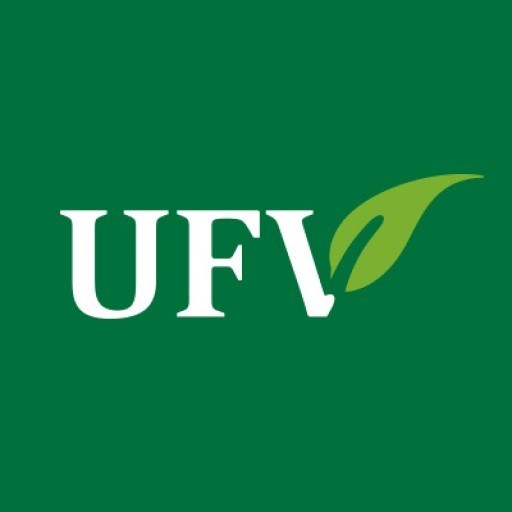Photos of university / #uofwaterloo
The Russian and East European Studies (REES) program at the University of Waterloo offers students a comprehensive and multidisciplinary education focused on the history, politics, culture, languages, and societies of Russia and Eastern Europe. This program aims to provide students with a deeper understanding of the complexities and diversity of this dynamic region through a combination of language acquisition, area studies, and analytical coursework. Students will have the opportunity to develop proficiency in one or more regional languages, such as Russian, Polish, Ukrainian, or others, while engaging with a broad spectrum of topics including historical developments, political institutions, economic systems, social movements, and cultural expressions. The curriculum is designed to prepare graduates for careers in international relations, government, academia, business, journalism, and non-governmental organizations that require regional expertise and intercultural competence. The program encourages experiential learning through internships, study abroad opportunities, and research projects, enabling students to apply their knowledge in real-world contexts. Faculty members specializing in Russian and East European studies are renowned for their research and teaching, providing students with access to current scholarly debates and regional insights. Graduates of the REES program will be equipped with critical thinking skills, linguistic proficiency, and a nuanced understanding of the region’s geopolitical and cultural landscapes, making them valuable assets in a globalized workforce. Whether aiming for further academic study or professional employment, students will benefit from the program’s rigorous academic training and its emphasis on intercultural dialogue and regional expertise. The program is ideal for individuals interested in fostering cross-cultural understanding and engaging with one of the most historically and politically significant regions of the world today.
The Bachelor of Arts in Russian and East European Studies at the University of Waterloo offers students an in-depth exploration of the history, culture, politics, and languages of Russia and Eastern Europe. This interdisciplinary program combines coursework from departments such as History, Political Science, Languages, and Cultural Studies to provide a comprehensive understanding of the region's complex social and political landscapes. Students will develop proficiency in Russian language skills, enabling them to engage with primary sources, communicate effectively, and gain a nuanced understanding of regional perspectives. The curriculum covers a wide array of topics, including the historical development of Eastern European nations, the evolution of their political systems, contemporary social issues, and the cultural achievements that have shaped the region’s identity.
Through a combination of lecture-based classes, seminars, and language training, students will analyze key historical events, political movements, and cultural phenomena that have influenced Russia and Eastern Europe from antiquity to the present day. The program emphasizes critical thinking, research skills, and intercultural competence, preparing graduates for careers in international relations, government, journalism, academia, or diplomacy. Opportunities for experiential learning include internships, study abroad programs, and research projects that allow students to immerse themselves directly in the region’s socio-political environment.
Faculty members are experts in their fields, offering mentorship and guidance tailored to individual interests and career goals. The university’s extensive library resources, language labs, and research centers further support student success. Graduates of the program will possess a broad, well-rounded understanding of Russia and Eastern Europe, combined with language proficiency and analytical skills that are highly valued in today’s globalized world. Whether pursuing advanced studies or entering the workforce, students will be equipped to contribute meaningfully to international understanding and cooperation in contexts related to the region.
The University of Waterloo offers a comprehensive program in Russian and East European Studies designed to provide students with a thorough understanding of the history, culture, politics, and economics of Russia and Eastern Europe. To complete the program, students are required to fulfill both core curriculum requirements and elective courses that deepen their knowledge of regional issues. Typically, the program includes foundational courses in Eastern European history, literature, and language studies, alongside advanced seminars on contemporary political developments and cultural analysis. Students must demonstrate proficiency in at least one Slavic language, most often Russian, through successful completion of language courses or equivalent assessments. The program emphasizes interdisciplinary approaches, encouraging students to integrate perspectives from history, political science, literature, and cultural studies. A research project or a major paper is usually required in the final year to synthesize learning and demonstrate analytical skills. In addition, students are encouraged to participate in study-abroad programs, internships, or cooperative education placements to gain practical experience and foster linguistic and cultural competence. Throughout their studies, students are expected to develop critical thinking, research expertise, and cross-cultural communication skills. The program also provides opportunities for engagement with regional organizations, conferences, and cultural events to enhance student understanding of current issues affecting Russia and Eastern Europe. Graduation requirements often include a minimum number of credits, completion of a capstone project, and maintaining a satisfactory academic standing. The overall goal of the program is to prepare graduates for careers in international relations, government, academia, journalism, or other fields that require specialized knowledge of Russian and East European affairs.
Want to improve your English level for admission?
Prepare for the program requirements with English Online by the British Council.
- ✔️ Flexible study schedule
- ✔️ Experienced teachers
- ✔️ Certificate upon completion
📘 Recommended for students with an IELTS level of 6.0 or below.
The University of Waterloo offers various financing options for students enrolled in the Russian and East European Studies program. Funding sources include government student loans, scholarships, and bursaries designed to assist domestic and international students in managing the costs associated with their degree. Canadian citizens and permanent residents are eligible to apply for federal and provincial student loan programs, such as the Ontario Student Assistance Program (OSAP), which provides low-interest loans and grants based on financial need. Additionally, students can access a range of merit-based scholarships awarded by the university for academic excellence, leadership, or contribution to community service. The university's financial aid office also offers bursaries to support students facing unexpected financial difficulties. International students enrolled in the program may be eligible for certain scholarships specific to international students or external funding from government and private sources in their home countries. Furthermore, part-time work opportunities are available on-campus and off-campus, providing students with the chance to earn income during their studies. The Waterloo Co-op Program, integrated into many degree programs, allows students to gain relevant work experience and earn money through paid work terms, which can significantly offset educational expenses. Students are encouraged to explore scholarships and funding options early in their academic planning to maximize available resources. Additionally, external organizations and foundations sometimes provide scholarships for students studying Russian and Eastern European studies, especially those focusing on language proficiency or regional expertise. Overall, the university emphasizes a combination of governmental aid, scholarships, bursaries, work opportunities, and external funding sources to help students finance their education in Russian and East European Studies.
The University of Waterloo offers a comprehensive program in Russian and East European Studies, designed to provide students with a deep understanding of the history, culture, politics, and languages of Russia and Eastern Europe. The program aims to develop students’ linguistic skills in Russian, along with critical analytical abilities related to the social, political, and economic issues facing the region. Through a multidisciplinary approach, students engage with a wide range of topics, including post-Soviet transformations, regional conflicts, cultural developments, and international relations.
The curriculum typically includes language courses at various levels, enabling students to attain proficiency in Russian or other regional languages. Additionally, coursework covers history, literature, political science, and area studies, often incorporating contemporary issues and historical perspectives. Students may have opportunities for study abroad programs, internships, or research projects that deepen their understanding and provide practical experience in the region.
The program is suited for students interested in careers in government, international organizations, journalism, academia, or business that require regional expertise and language skills. Faculty members with expertise in Russian and East European affairs participate in research and policy analysis, enriching classroom instruction with current insights. Students are encouraged to participate in seminars, conferences, and cultural events to enhance their learning experience and build connections in the field.
Graduates of the program graduate with strong regional knowledge, fluency in Russian, and critical research skills, preparing them for diverse professional pathways or graduate studies. The program emphasizes a blend of theoretical knowledge and practical skills, ensuring students are well-equipped to contribute to fields related to the region. The intersection of language proficiency, cultural literacy, and regional analysis makes this program a valuable asset for those interested in the dynamic and historically significant area of Russian and East European studies.



